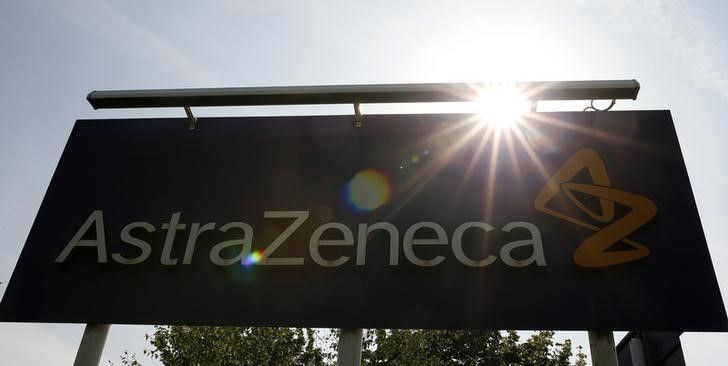AstraZeneca Chases Biosimilar Avastin Drug With Japanese Group

LONDON (Reuters) - AstraZeneca is dipping its toe in the biosimilars market, as a way to make future cancer drug cocktails more affordable, by linking with a Japanese group to develop a copy of Roche's blockbuster medicine Avastin.
Its new 50/50 joint venture with Fujifilm Kyowa Kirin Biologics (FKB) will work on a copycat version of Avastin, which is currently used in a range of solid tumors and also has potential to be given alongside new immunotherapy treatments.
FKB -- itself a tie-up between Fujifilm and Kyowa Hakko Kirin -- commenced a Phase I clinical trial of its copy of Avastin, called FKB238, in Europe last November.
Under the terms of the agreement, FKB will transfer the rights to FKB238 to the new joint venture and will receive a lump-sum payment of $45 million in return.
An AstraZeneca spokeswoman said the move did not reflect a shift away from the British company's focus on innovative products but rather was a way to develop a product that could be used in affordable drug cocktails.
"This supports our combination-focused strategy in oncology to help explore potential new treatment options, whilst keeping the cost of new therapies low enough to enable access for patients and payers," she said.
Immunotherapy drugs, which harness the immune system to fight tumors, represent a significant advance in cancer treatment but many experts believe their greatest promise lies in combining them with drugs that work in different ways.
Roche, the world's biggest maker of cancer drugs, is already exploring such combinations using Avastin.
AstraZeneca could now do something similar by combining FKB238 with its leading experimental immunotherapy drug MEDI3476 and others in the pipeline.
The arrival of so-called biosimilars represents a threat to companies such as Roche that make their money by selling complex biotech medicines, although the rollout of these products will take time.
Roche said on Thursday it expected the first biosimilar copies of its cancer medicines Rituxan and Herceptin to hit the market in late 2017, with competition to Avastin coming later, since it has longer patent protection.
Because biotech drugs are made from living cells it is impossible to manufacture exact copies, as happens with simple chemical medicines, so regulators have come up with the notion of approving products that are similar enough to do the job.
(Reporting by Ben Hirschler; Editing by Mark Potter)
Published by Medicaldaily.com



























